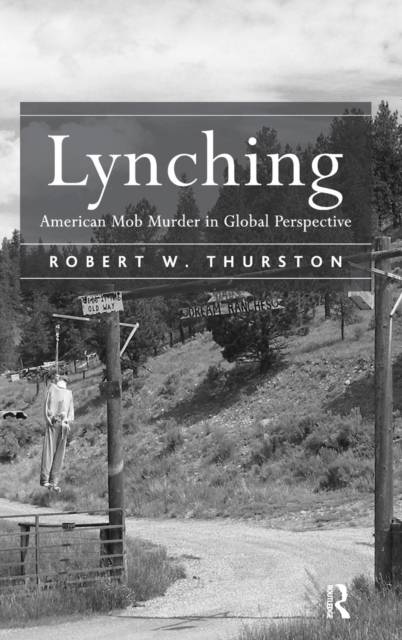
En raison d'une grêve chez bpost, votre commande pourrait être retardée. Vous avez besoin d’un livre rapidement ? Nos magasins vous accueillent à bras ouverts !
- Retrait gratuit dans votre magasin Club
- 7.000.000 titres dans notre catalogue
- Payer en toute sécurité
- Toujours un magasin près de chez vous
En raison de la grêve chez bpost, votre commande pourrait être retardée. Vous avez besoin d’un livre rapidement ? Nos magasins vous accueillent à bras ouverts !
- Retrait gratuit dans votre magasin Club
- 7.000.0000 titres dans notre catalogue
- Payer en toute sécurité
- Toujours un magasin près de chez vous
290,45 €
+ 580 points
Description
Addressing one of the most controversial and emotive issues of American history, this book presents a thorough reexamination of the background, dynamics, and decline of American lynching. It argues that collective homicide in the US can only be partly understood through a discussion of the unsettled southern political situation after 1865, but must also be seen in the context of a global conversation about changing cultural meanings of 'race'. A deeper comprehension of the course of mob murder and the dynamics that drove it emerges through comparing the situation in the US with violence that was and still is happening around the world. Drawing on a variety of approaches - historical, anthropological and literary - the study shows how concepts of imperialism, gender, sexuality, and civilization profoundly affected the course of mob murder in the US. Lynching provides thought-provoking analyses of cases where race was - and was not - a factor. The book is constructed as a series of case studies grouped into three thematic sections. Part I, Understanding Lynching, starts with accounts of mob murder around the world. Part II, Lynching and Cultural Change, examines shifting concepts of race, gender, and sexuality by drawing first on the romantic travel and adventure fiction of the era 1880-1920, from authors such as H. Rider Haggard and Edgar Rice Burroughs. Changing images of black and white bodies form another major focus of this section. Part III, Blood, Debate, and Redemption in Georgia, follows the story of American collective murder and growing opposition to it in Georgia, a key site of lynching, in the early twentieth century. By situating American mob murder in a wide international context, and viewing the phenomenon as more than simply a tool of racial control, this book presents a reappraisal of one of the most unpleasant, yet important periods of America's history, one that remains crucial for understanding race relations and collective violence around the world.
Spécifications
Parties prenantes
- Auteur(s) :
- Editeur:
Contenu
- Nombre de pages :
- 442
- Langue:
- Anglais
Caractéristiques
- EAN:
- 9781409409083
- Date de parution :
- 28-02-11
- Format:
- Livre relié
- Format numérique:
- Genaaid
- Dimensions :
- 156 mm x 234 mm
- Poids :
- 793 g

Les avis
Nous publions uniquement les avis qui respectent les conditions requises. Consultez nos conditions pour les avis.






